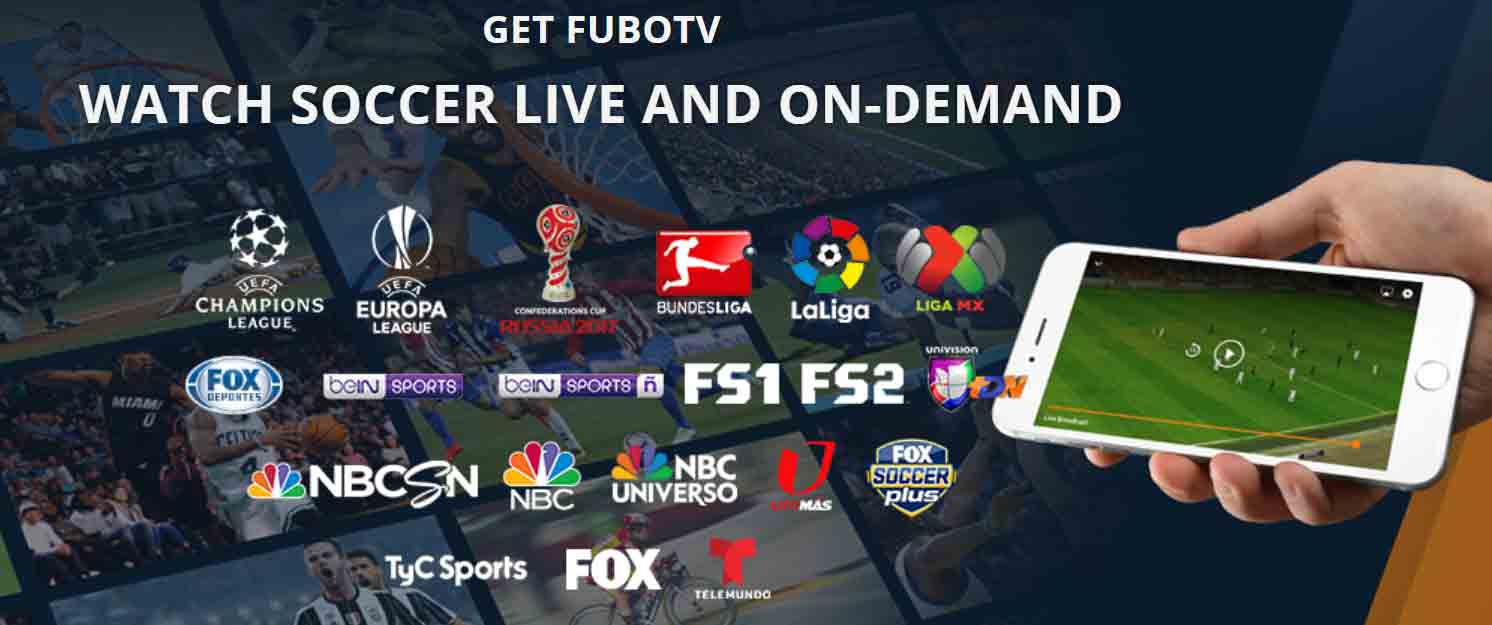The Five Spot: David Gandler

The smarter way to stay on top of broadcasting and cable industry. Sign up below
You are now subscribed
Your newsletter sign-up was successful
Bonus Five
Shows on your DVR? I have everything from The Parent Trap (1998) that I watch with my daughter, to Green Lantern from DC Comics, and a new series on NBC called Reverie.
All-time top TV show? Seinfeld, Friends
Favorite podcast? “None. I listen to CNBC on my iPhone as I walk to work. I’m a video guy.“
Best recent meal, and where? I’m a big sushi fan, so Nobu on 57th Street [in New York].
Bucket-List vacation: “I canceled two vacations this year … but French Polynesia would be amazing — over-water bungalows, no phones, no technology for a week.”
Quick to enter the over-the-top TV fray in early 2015 with a sports-first service, fuboTV continues to battle it out with a growing array of streaming rivals.
The smarter way to stay on top of broadcasting and cable industry. Sign up below
Despite the heat being applied by larger competitors, David Gandler believes fuboTV’s content mix and multiscreen streaming experience positions the service to grab as much as 20% of the virtual MVPD market. Its average viewership is roughly 40 hours per household on connected TV devices, he said, a three-fold jump since January.
fuboTV today offers service in the U.S. and a more limited package in Canada, but it’s thinking more broadly, eyeing a launch in Western Europe “very soon,” according to Gandler.
B&C contributor Jeff Baumgartner recently caught up with Gandler to discuss consumer reaction to the service during the FIFA World Cup and what’s on the horizon.

As we talk, the World Cup is in the early group stage. What are some of the early takeaways with respect to new subscriber signups and viewing patterns?
We have always been known, at least in the early days, as a soccer service. If you look at free services like App Annie, you’ll see that we have significantly increased the number of app downloads over the course of the World Cup. If you look at a broader virtual MVPD landscape, you’ll see that we’re coming in the top three in terms of downloads. Although that’s a vanity metric, it does certainly provide you direction in where we’re going. The platform is working quite well. We haven’t seen any outages [during the tournament].
Did you do any special work with respect to scaling up streaming capacity?
I would say that we don’t do anything special for these major events, only because we want to make sure that our platform can handle millions of concurrencies. Given the fact that we are a sports-first platform, our goal is to ensure that this happens every single week, every month for every major event that we carry.
What’s your top priority for the rest of 2018 and what is the biggest challenge you’ll face?
We’ve been pretty quiet on the marketing front. You’ll see us begin to accelerate as we get into the soccer season and the NFL and college football seasons. The greatest challenge is … time. There’s a lot of great things we’re working on right now that we’re going to release in the coming months. We continue to develop our front-facing platforms. We’re working on significant improvements in the back end. We hope to be rolling out a recommendations engine, 1.0, some time, call it mid-September.
What is fuboTV doing — beyond pricing and packaging — to differentiate itself?
We’ve been working on features that we will be rolling out in the coming quarters. As long as we stay ahead of the pack in terms of releasing a lot of these core capabilities, we’re going to get an opportunity to really test which features have traction and where to double down. Our assumption is that we’re going to control or have market share that’s roughly in the 15 to 20% of the virtual MVPD space. That’s … what our goal is domestically.
How will 4K and HDR factor into fuboTV’s future?
We plan to roll out a 4K beta this summer. … For us, [4K] is a big part of our future. What we’re seeing is that there is a noticeable difference to the naked eye in terms of quality, so we’re very excited about that. [Update: fuboTV launched 4K service on July 2.]
